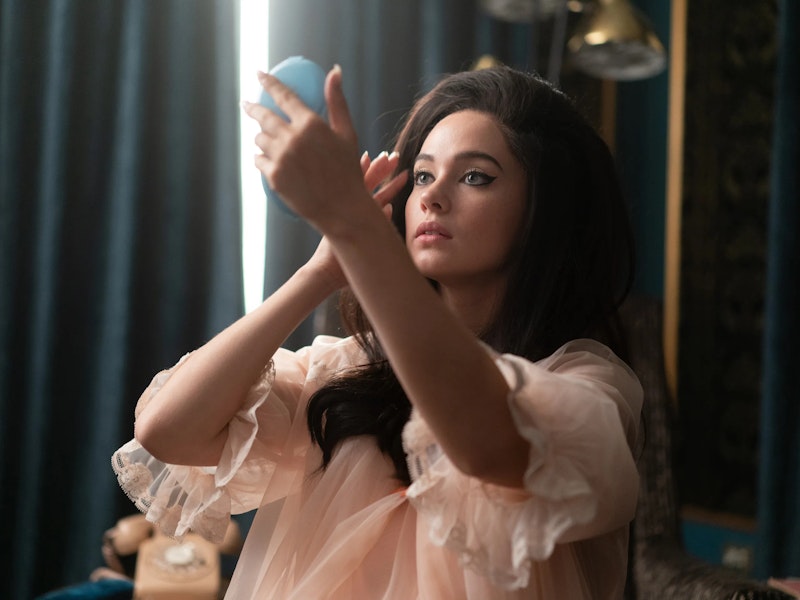During an interview with The New York Times, writer Kyle Buchanan asked Sofia Coppola, “Do you know what Letterboxd is?” Her response: “No.” He explains the site: not quite social media, but not not social media, a place to share your film favorites, reviews, watchlists, and more. “And that’s where you show the movies that you’re loving? Is there a dating aspect of that too? You meet a guy, you can see what movies he likes, right?” Buchanan affirms her guess. “Oh. I’d never heard of Letterbox [sic].”
Someone on Twitter pleaded something like, “I MUST know what makes her associate everything first and foremost with female adolescence.” In an era bereft of real American film artists, Coppola remains a bright light for the kind of mid-budget adult drama that everyone always talks about missing so much. Whether you enjoy her “thing” or not, she’s keeping the tradition of auteur cinema alive, along with filmmakers like Wes Anderson, Christopher Nolan, Alexander Payne, and others who’ve had new releases in 2023. Priscilla, Coppola’s latest, is a return to familiar territory after the refreshingly different and delightful Manhattan comedy On the Rocks in 2020. That movie got buried by the pandemic and AppleTV, and it remains difficult (if not impossible) to see anywhere else.
Priscilla is getting a bigger push, benefiting from a thin fall release calendar and, like all films, hurt by the on-going SAG-AFTRA strike. But, like the other aforementioned directors, Coppola is a star herself, more so than her leads Cailee Spaeny (Priscilla Presley) and Jacob Elordi (Elvis Presley). The movie is also surely benefitting from the vapors of last year’s Elvis, a messy but magnificent spectacle of a movie by Baz Luhrmann. Beyond surface details, Coppola’s film shouldn’t be compared, not only because they’re about different people, but because they’re completely different kinds of movies: Elvis is immediate and in your face, and Priscilla, like nearly all of Coppola’s films, will take years to settle. Besides Lost in Translation—and perhaps The Virgin Suicides—she’s never had critics or audiences fawning from the start; besides the 180 reappraisal on Marie Antoinette, all of her other films remain under-discussed and largely overlooked.
I don’t think Priscilla will enthrall young people like Marie Antoinette does, mostly because of its deliberately dark lighting—it’s a lot easier to see the curls and gowns in golden Versailles. Coppola’s take on Priscilla’s upbringing, courtship and eventual marriage to Elvis is curiously funereal, considering the still-living Priscilla Presley’s involvement. What’s familiar from her previous films is the distance, not quite cold, nor indifferent, but simply factual, as is—Elvis slapping Priscilla is lit and filmed just as sorrowful as anodyne breakfast table scenes at the beginning with her parents. Without having read the source memoir, I’d guess Presley was a clinical depressive and just as doomed as her eventual husband. But we don’t see any real tragedy in her life, beyond life’s expected punches circa mid-20th century America: cheating, pills, a bit of physical abuse, and the gilded cage that the wife of a superstar must live in.
But Coppola ends her film with Priscilla leaving Graceland to the tune of “I Will Always Love You” by Dolly Parton. Like several other Coppola films, Priscilla is principally concerned with the inner world of a teenage girl, but because of the well-documented source material, she’s far more restricted than in Marie Antoinette or even The Bling Ring, mostly because she’s forced to follow the beats of Presley’s life, all of which have long since become clichés: forbidden love, first glances of the rock god, rocky start, a wild ascent, the realization that fame is just as much of a prison as an American military base. Although she uses contemporary and anachronistic music—including 1968’s “Crimson and Clover” scoring Priscilla swooning in 1959—Coppola’s form is closed in and conservative, leaving little impression but a grim march toward some kind of doom.
Before her death early this year, Lisa Marie Presley begged Coppola not to make the film; she called the script “reprehensible” and “a betrayal,” one that makes her father look horrible. Coppola didn’t budge, and, estranged from her daughter, neither did Priscilla Presley. Of course Lisa Marie would know, but her father isn’t who comes off badly in Priscilla, nor anyone else, but it makes you wonder why everything is so dark, visually and tonally. Priscilla Presley is a woman who won in the end—or did she? Was she cursed? Will she always love him? It’s a strange film, one that Coppola could’ve made 10 or 20 years ago, unlike On the Rocks, her light comedy that still stands alone. I’d like to see more surprises like that.
—Follow Nicky Smith on Twitter: @nickyotissmith

